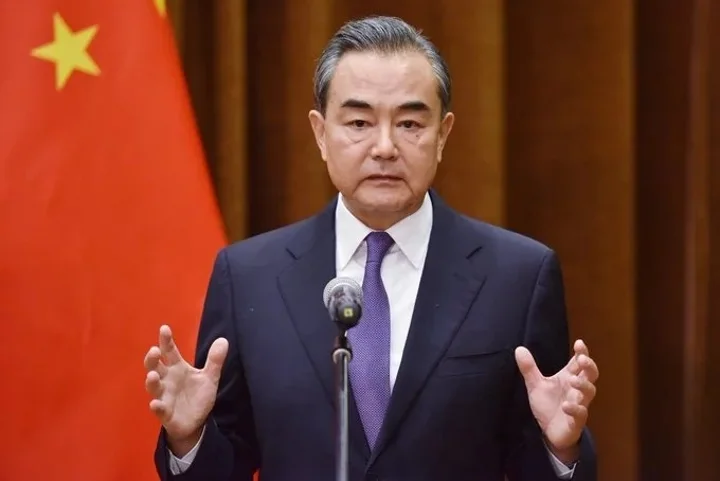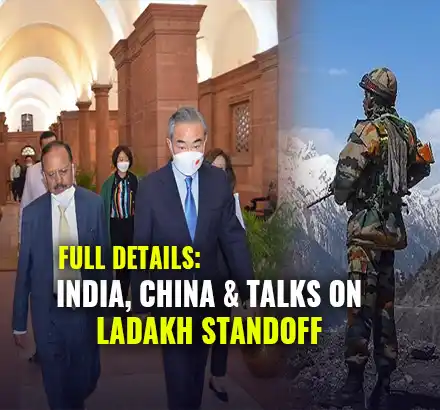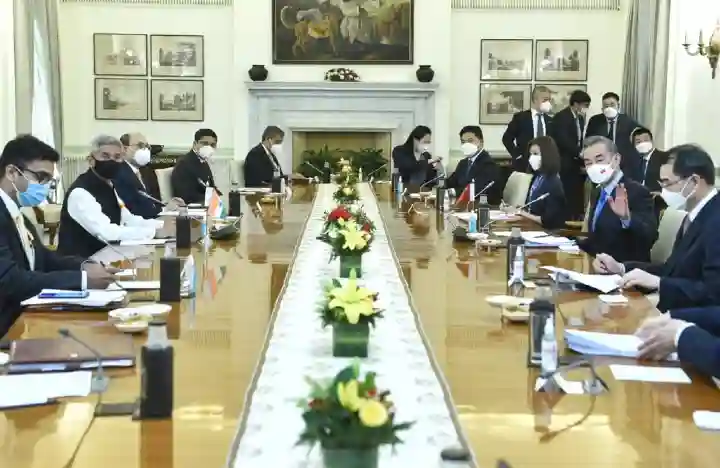Chinese foreign minister Wang Yi’s short visit to India was kept carefully kept under wraps by both New Delhi and Beijing with a purpose. Insiders told India Narrative that the meeting was deliberately meant to be kept low key as this was the first high level visit by any Chinese official since the bloody Galwan Valley clash on the Line of Actual Control (LAC) and that not ‘so positive’ public sentiments are still riding high.
New Delhi has rightfully and firmly maintained that overall relations can be normalised only after the standoff between Indian and PLA troops ends with China restoring the status quo ante as it existed in April 2020 prior to the Chinese incursion in eastern Ladakh.
Nevertheless, the visit may have set a positive tone of reconciliation, though observers say that much will depend on how the Leading Group on foreign policy in –a powerful conclave of top party leaders in China, which is usually headed by one of the seven members of the standing committee of the Politburo digests the feedback that Wang provides based on his interaction with NSA Ajit Doval and External Affairs Minister S Jaishankar.
“Such low-key meetings often do serve a larger purpose without raising any expectations. So stakes are low…this was a wise move from both sides,” Aravind Yelery, senior research fellow at the Peking University and visiting faculty at Fudan University in Shanghai told India Narrative.
Global Times said in an editorial that the visit “illustrates both sides' pragmatic attitude to seek expanding their consensus amid specific divergences.”
"China does not pursue the so-called "unipolar Asia" and respects India's traditional role in the region. The whole world will pay attention when China and India work hand in hand," Wang said, adding that the two countries should stick to their own development paths and join hands to safeguard peace and stability in the region and the world. The readout published in the Chinese foreign ministry website expectedly did not mention anything about Indian expectations on the border
The Global Times editorial added that the two economies can totally expand mutually beneficial cooperation in international affairs, restore the foundation of mutual trust, and create more conditions to further manage bilateral differences.
“When it comes to major goals involving common interests, China and India should keep standing together,” it said.
Amid the changing geopolitical order, analysts said that the importance of Brazil-Russia-India-China-South Africa (BRICS) block and Russia-India-China (RIC) could significantly rise.
Also read: Why China may begin to respond to India’s core concerns during Wang Yi’s visit
India Briefing said that China, which also holds the chair for the RIC trilateral in 2022, is keen to host Prime Minister Narendra Modi for the in-person BRICS summit later during the year. Russian President Vladimir Putin is expected to attend the summit as well.
Meanwhile Doval in his meeting with Wang underlined the "need to continue positive interactions at diplomatic and military levels for restoration of peace and tranquillity, which is a prerequisite for normalisation.” He stressed that once the border issue is resolved, he could pay a visit to China for the Special Representative talks that he and Wang head
















